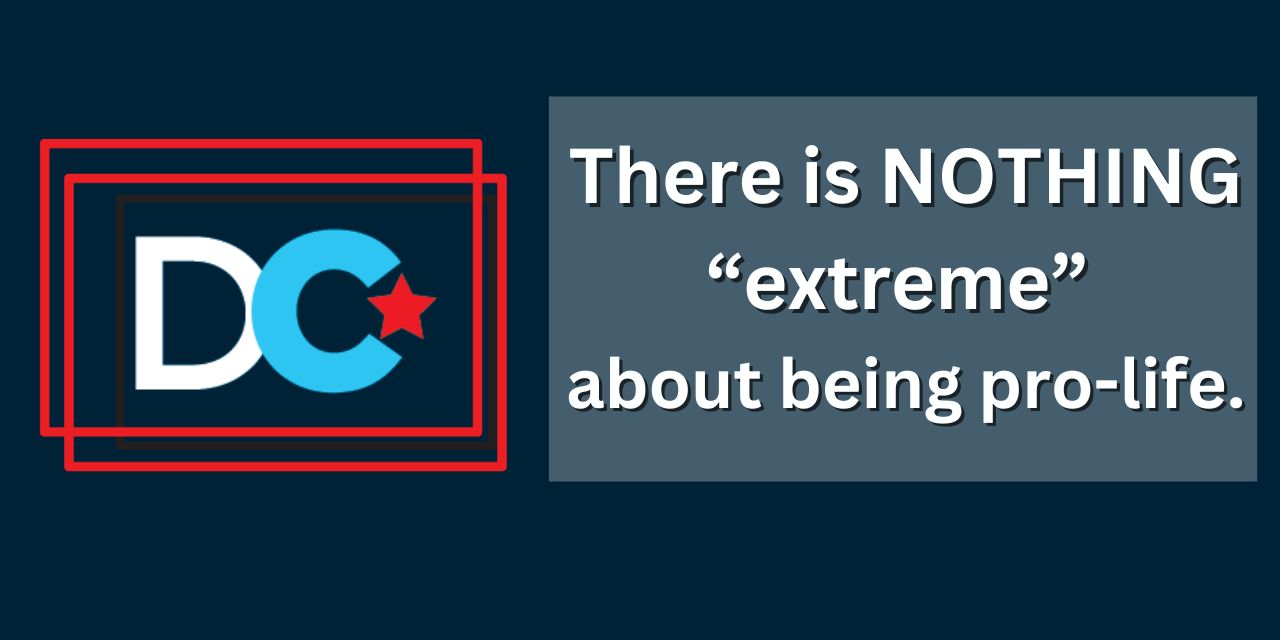For more than a half-century, the battle in defense of innocent pre-born life has included a raging debate over the language and lexicon used to describe the wicked and evil act of abortion.
After all, as the oft-quoted saying goes, “He who controls the language rules the world.”
Over the years, abortion advocates have gone to great lengths to use soft and gentle terms to describe the dark deed of killing children. You’re well familiar with the linguistic gymnastics employed:
Abortion activists call it “reproductive health” or “reproductive rights” even though it has nothing to do with preserving health – but abruptly and artificially shutting reproduction down. Accordingly, they claim those of us who oppose it aren’t “pro-life” – we’re “anti-choice.” We also hear the term “bodily autonomy” a lot, yet no care or reference is made to the autonomy of the body of the baby being aborted.
Ironically, abortion zealots have accused those of us who favor the protection of life to be serving up misleading information or outright falsehoods. Writing in Forbes Magazine last month, Amanda Seller of MSI Reproductive Choices, a pro-abortion lobby group, claimed:
“The anti-choice movement is playing a game of disinformation, using emotive language that eschews the reality of modern, safe abortion to manipulate people into support.”
There’s so much that’s just not true with that observation that it’s difficult to know where to begin.
First, it’s no wonder that any language we use will be perceived as being “emotive” because matters of life and death are, by nature, emotional. That’s why Planned Parenthood and other abortion providers often refuse to show women who come in for an exam the image of their ultrasound. It’s emotional to see your baby move inside your womb. It’s not that we’re using triggering language – we’re just describing things as they are.
There’s also no such thing as a “safe” abortion. Every abortion is a violent act that destroys an innocent life. Women who undergo them are at elevated medical risk – and emotional risk, too. Deep wounds and regret follow many mothers who abort for the rest of their lives.
Finally, pro-life advocates don’t “manipulate” – they simply tell the truth and show the facts.
The latest tactic of radical abortion activists is to label pro-life supporters as “extremists” – as in holding to a position most people feel is “unreasonable” and “unacceptable.”
Is it really “unreasonable” to advocate for the preservation of life?
Is it really “unacceptable” to think adoption is better than abortion?
Let’s be clear: there is nothing “extreme” about being pro-life.
Who are the real extremists? Not surprisingly, the very ones making the accusations about us.
The real extremists are abortion advocates, most of whom will never agree to any limits on the termination of life at all. “Abortion on demand” is what they want, and when asked they won’t compromise or move one inch.
Yet, beware the language and obfuscation games they play. You will hear them claim nobody supports abortion up to birth – and yet try and ask them at what point would they support restrictions. Earlier this week, Dr. Al Mohler, president of Southern Seminary, summed up what we should be asking of politicians who are trying to dance around the issue:
- At what point would you believe that thereafter abortion should not be legally available?
- What is the point at which the fetus, the unborn baby has the right to life without the risk of an abortion by the mother’s decision?
- At what point does the life of that unborn child, that unborn human being, at what point does that life simply become so irrefutably important and urgent that a sane society would not allow abortion after that point?
These are excellent “fog-cutting” questions – just don’t hold your breath waiting for answers.






